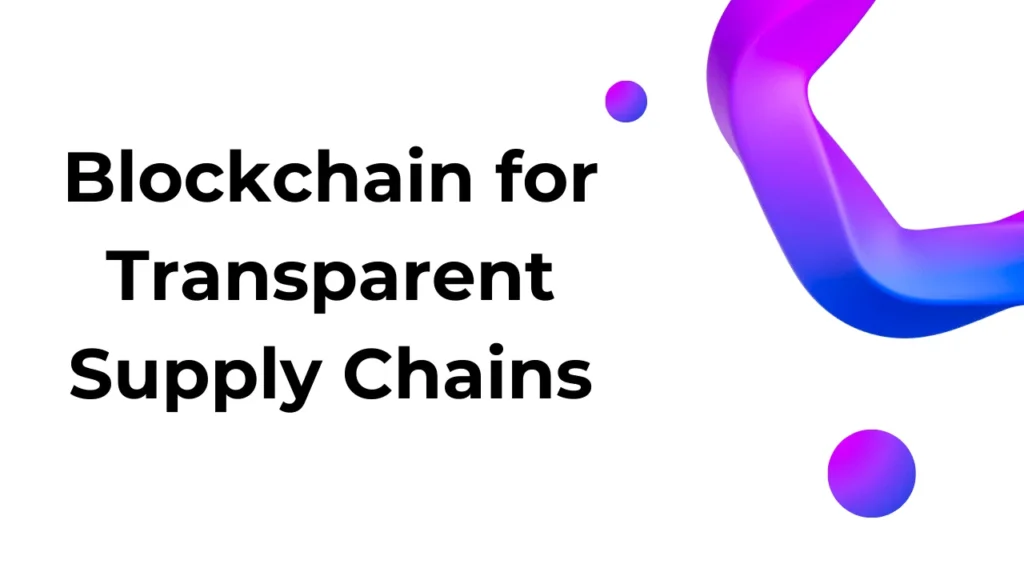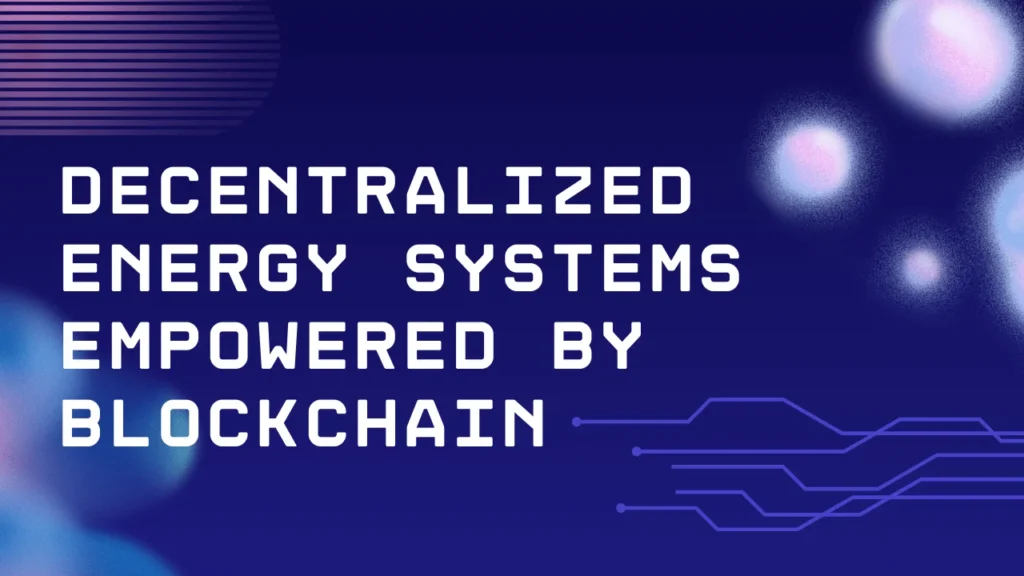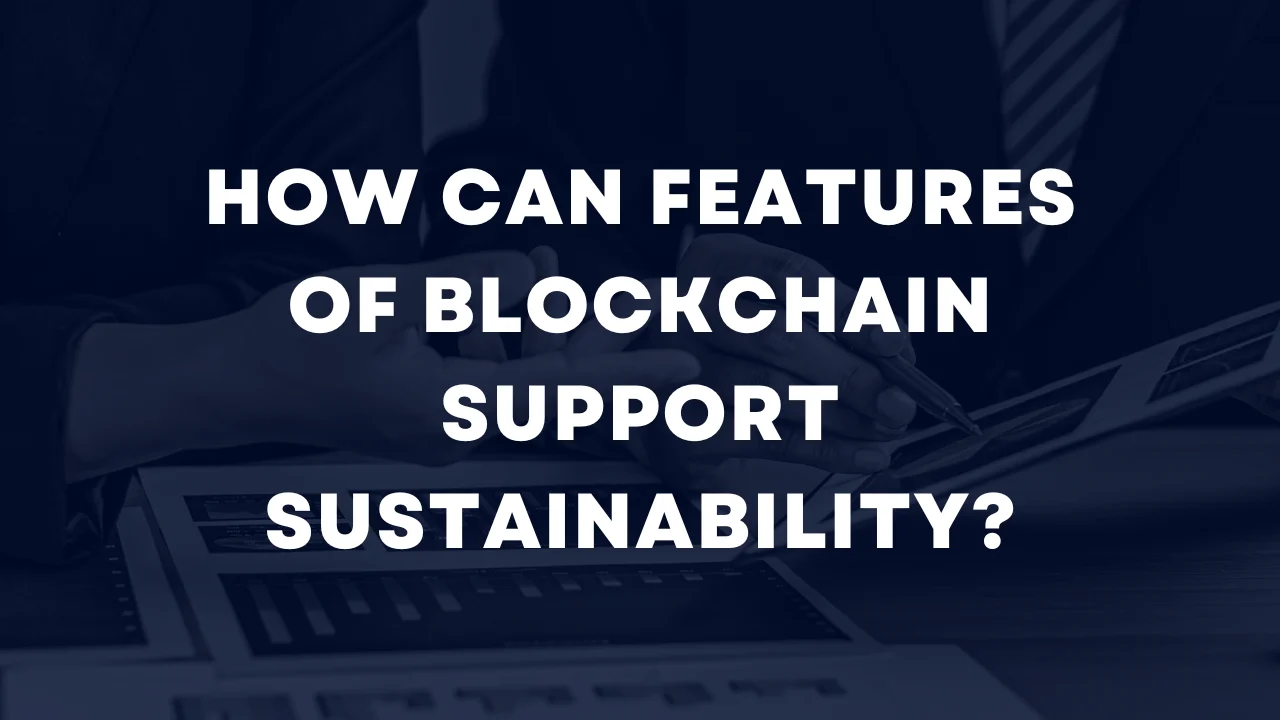The revolutionary blockchain technology has changed many industries by increasing trust, efficiency, and teamwork in previously unimaginable ways. How can features of blockchain support sustainability? This technological revolution has the ability to greatly enhance sustainability initiatives worldwide. This article explores the ways in which blockchain technology can contribute to sustainability. It offers a professional evaluation of blockchain’s uses, advantages, and obstacles that must be overcome in order to fully realize its promise of making the world a better, more sustainable place.
Blockchain for Transparent Supply Chains

Real-Time Tracking and Verification
Supply chains are now more transparent and traceable than ever before thanks to blockchain technology. Instantaneous verification of product origin, journey, and ethical standards is possible thanks to a tamper-proof ledger that records every transaction or movement of goods. In order to prevent fraud and guarantee adherence to social and environmental standards, this openness is vital.
Accountability and Ethical Practices
Once data is entered into a blockchain record, it cannot be removed or changed because the record is immutable. This function makes sure that companies and vendors are answerable for their effects on the environment and their treatment of workers. With their activities recorded and immutable on the blockchain, companies are motivated to embrace more ethical and environmentally friendly practices.
Reducing Waste Through Efficient Logistics
By decreasing duplication and increasing coordination, blockchain technology can simplify supply chain operations. Supply chain management becomes more sustainable as a result of reduced operational costs, waste, and carbon emissions caused by transportation and production processes.
Certifying Sustainable Products and Materials
By creating a decentralised ledger that is both secure and transparent, blockchain technology can verify whether a product or material is sustainable. With the help of this certification process, shoppers are better able to make eco-friendly product selections.
Combating Counterfeit Goods
Counterfeit goods are a big problem in many industries, including pharmaceuticals and luxury goods, but blockchain’s traceability helps in the battle against them. Supporting ethical production and contributing to the protection of intellectual property and labor rights, blockchain technology verifies the authenticity of products.
Decentralized Energy Systems Empowered by Blockchain

Facilitating Peer-to-Peer Energy Trading
With blockchain technology, businesses and individuals can trade excess renewable energy directly with one another, eliminating the need for a middleman. Greenhouse gas emissions can be reduced thanks to this model’s dual benefits of lowering energy costs and encouraging the use of renewable energy sources.
Promoting Renewable Energy Adoption
Distributed ledger technology (DLT) energy systems make renewable energy more accessible to the general public. Blockchain technology has the potential to greatly quicken the adoption of renewable energy sources by enabling direct transactions between generators and consumers. This would mean that sustainable energy would be more widely available and less expensive.
Improving Grid Management and Efficiency
Through the optimization of energy distribution based on real-time demand and supply data, blockchain technology has the potential to improve the efficiency and reliability of power grids. A more reliable and long-term supply of energy is guaranteed by this enhanced grid management, which also decreases energy waste.
Innovation in Energy Technologies
New developments in renewable energy technology can flourish on the efficiency and openness of blockchain-based systems. The objective of providing everyone with access to sustainable energy is advanced by incentivizing both new and existing businesses to create innovative energy generation, storage, and sharing solutions.
Reducing Carbon Footprint Through Efficient Transactions
The energy sector leaves less of an ecological imprint thanks to blockchain technology, which can simplify transactions and lessen the demand for power-hungry data centers. Aligning energy production and consumption practices with sustainability goals, blockchain allows for transactions between producers and consumers to minimize environmental impact.
Challenges and Considerations for a Sustainable Blockchain
The environmental impact of blockchain’s underlying processes must be addressed if the technology is to deliver on its promise of sustainability solutions. A delicate balancing act between the advantages of decentralization and the necessity for environmental protection is necessitated by the substantial energy consumption linked with blockchain technology, especially in cryptocurrency. To reduce blockchain’s impact on the environment and make it a genuine tool for sustainability, it is essential to create consensus mechanisms that use less energy and power blockchain operations with renewable energy.
Blockchain and Sustainable Asset Management
Revolutionizing Green Bonds and Investments
A new era in sustainable investment management and trading is dawning, made possible by blockchain technology. Tokenizing assets on a blockchain allows issuers to be more transparent about how the funds are being used, and it gives investors access to performance data in real-time. Greater efficiency and openness can encourage more investment in sustainability efforts by reassuring potential backers and reducing the cost of financing environmentally friendly projects.
Enhancing Accessibility to Sustainable Investments
Access to sustainable investment opportunities is democratized by blockchain technology. Tokenized assets allow for fractional ownership, allowing small investors to participate in financing sustainable projects. This is in contrast to traditional investing, where entry barriers were high. Increased funding for sustainability projects around the world is possible with this expanded pool of investors.
Streamlining Reporting and Compliance
In order to streamline reporting for compliance with ESG standards, blockchain technology is being used to manage sustainable assets. By automating the reporting process, smart contracts can guarantee that data is accurate and up-to-date. This improves the credibility of sustainability claims, which in turn increases trust among stakeholders, while simultaneously reducing administrative burdens.
Tracking the Impact of Sustainability Projects
The precise tracking and verification of sustainability projects’ impacts on the environment and society are made possible by blockchain technology. Sustainable investments, like those that aim to reduce carbon emissions or improve local communities, can be more easily tracked and measured with the use of blockchain technology, which provides permanent records of project outcomes.
Blockchain for Enhancing Food Security and Agriculture
Improving Traceability in the Food Supply Chain
From farm to fork, blockchain technology greatly improves food supply chain traceability. By documenting the entire food supply chain on a blockchain, buyers can ensure that their food is both safe and authentic. Food fraud can be greatly reduced and food safety standards can be improved with this degree of openness.
Reducing Food Waste Through Efficient Supply Chains
Blockchain technology has the potential to lessen food waste by enhancing supply chain operations. More efficient and transparent food supply chains can reduce food waste and help create more sustainable food systems by ensuring that perishable goods are consumed before they spoil.
Promoting Sustainable Farming Practices
In order to help consumers make informed choices that support environmentally friendly agriculture, blockchain technology can be used to certify sustainable farming practices. Blockchain enables consumers to prioritize purchasing products that contribute to the well-being of the planet by verifying the adherence to sustainable practices.
Facilitating Access to Financial Services for Farmers
Smallholder farmers frequently do not have the collateral necessary for conventional loans; blockchain technology can be a game-changer in this regard. Tokenization and smart contracts make it possible for farmers to borrow money against their land or crops, which allows them to put that money toward more environmentally friendly farming methods.
Frequently Asked Questions
Q: How does blockchain contribute to sustainable development?
A: Blockchain contributes to sustainable development by enhancing transparency, accountability, and efficiency in various sectors, including supply chain management, energy, and finance, fostering more ethical and sustainable practices.
Q: Can blockchain technology reduce carbon emissions?
A: Yes, blockchain can facilitate the adoption of renewable energy through peer-to-peer energy trading and improve supply chain efficiencies, thereby helping to reduce carbon emissions.
Q: What is the role of blockchain in sustainable agriculture?
A: Blockchain enhances sustainable agriculture by improving traceability, reducing food waste, promoting sustainable farming practices, and providing financial services to smallholder farmers.
Q: How does blockchain support the management of sustainable assets?
A: Blockchain supports sustainable asset management by increasing the transparency and efficiency of green bonds and investments, streamlining reporting and compliance, and tracking the impact of sustainability projects.
Q: What challenges does blockchain technology face in contributing to sustainability?
A: The main challenges include its significant energy consumption, the need for scalable and sustainable blockchain solutions, and the requirement for broader regulatory acceptance and standardization in its applications for sustainability.
Also Read: Hashing in Blockchain: All You Need to Know
Conclusion
To sum up, blockchain technology has the ability to revolutionize sustainability in many different industries. How Can Features of Blockchain Support Sustainability? Well, blockchain technology has the potential to encourage responsible corporate practices, lessen negative effects on the environment, and pave the way for new ideas in sustainable development by increasing efficiency, transparency, and accountability. To make sure that blockchain technology helps achieve global sustainability goals, we must keep working to solve the environmental problems that come with it. Only then can we fully realize its potential.

Timothy Jensen is an expert writer who specializes in the world of cryptocurrencies, including blockchain technology and Bitcoin. He has a passion for explaining complex topics in an easy-to-understand way. Timothy’s work aims to demystify the digital currency landscape for his readers.

